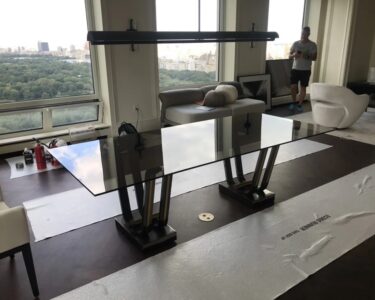In the ever-evolving world of manufacturing and design, technology continues to provide innovative solutions for both professionals and hobbyists. One such innovation is the small CNC machine, a powerful tool that brings precision and efficiency to tasks that were once time-consuming and labor-intensive. While large CNC routers have long been the standard for industrial applications, the small CNC machine has emerged as a versatile and accessible option for those with more modest needs. This article delves into the advantages, applications, and reasons why a small CNC machine could be a game-changer for your workshop or business.
What is a Small CNC Machine?
A small CNC machine is a compact, computer-controlled tool designed to cut, engrave, or shape materials such as wood, metal, plastic, and foam. CNC stands for Computer Numerical Control, meaning the machine operates based on a pre-programmed set of commands, ensuring precision and consistency in every project. Unlike large CNC routers, which are typically used in large-scale manufacturing and require significant space, small CNC machines are ideal for smaller workshops, hobbyists, and businesses that demand accuracy without the need for industrial-scale equipment.
Benefits of Using a Small CNC Machine
1. Precision and Accuracy
One of the primary benefits of a small CNC machine is its ability to deliver high levels of precision. Whether you’re crafting intricate designs or working on detailed parts, the machine’s computer-controlled movements ensure that each cut is exact. This precision is particularly beneficial for applications that require tight tolerances, where even the slightest deviation can result in a flawed product.
2. Cost-Effective
Small CNC machines are generally more affordable than their larger counterparts. For small businesses or individuals, investing in a large CNC router may be financially impractical. However, a small CNC machine offers a cost-effective alternative without sacrificing the quality of the work produced. The lower cost of entry also makes these machines accessible to hobbyists who might not otherwise consider investing in CNC technology.
3. Space-Saving Design
Large CNC routers require significant space and infrastructure, which can be a limiting factor for smaller workshops or home-based businesses. In contrast, a small CNC machine can fit comfortably on a workbench or a compact workspace, making it an ideal choice for those with limited space. Despite its smaller size, it still offers the same level of functionality and efficiency as larger machines.
4. Versatility in Applications
A small CNC machine is incredibly versatile, and capable of handling a wide range of materials and projects. Whether you’re engraving custom designs on wood, cutting out metal parts, or shaping plastic components, this machine can do it all. Its adaptability makes it an excellent tool for both creative and practical applications, from custom signage to prototyping and small-scale production.
5. Ease of Use
Advancements in technology have made small CNC machines more user-friendly, even for those without extensive technical knowledge. Many models come with intuitive software that allows users to design and execute projects with relative ease. This user-friendliness is particularly appealing to hobbyists and small business owners who may not have formal training in CNC operation.
Conclusion
A small CNC machine offers a perfect balance between functionality, affordability, and space efficiency. While large CNC routers dominate the industrial landscape, small CNC machines provide an accessible and practical solution for hobbyists, small businesses, and anyone looking to enhance their craftsmanship. Whether you’re aiming to produce high-quality custom pieces or streamline your production process, investing in a small CNC machine could be the key to unlocking new possibilities in your work.



